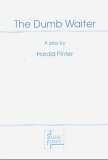Musolff's study on
Metaphor and Political Discourse (the book I've referred to in the comments to my last
metaphor post) manages to operationalize Lakoff/Johnson's theory quite nicely. He investigates the metaphors referring to Europe/the European Union in the British and German print media from 1989-2001, using a two-step method:
First, he collects all the relevant metaphors in a small specialized corpus of news coverage about Europe. He then sorts them into domains/lexical fields, and finally into more specific scenarios with role slots, story lines etc (e.g. Having a child - two partners have a child and care/provide for it --> the euro as a child of the union; can be sickly or strong and healthy etc.). Thus, the conceptual structures he works with are based on corpus-based evidence, they are not just interpretations of salient examples like those of L/J.
He then uses the findings from the pilot corpus to analyze a larger and more representative corpus drawn from standard linguistic corpora (COSMAS for Germany and BoE for Britain). To tackle such a huge amount of data, he uses the results from the pilot corpus to formulate search criteria: He simply searches for all the lexical items that occurred in the metaphors about Europe in the first corpus (supplementing them with more from the same lexical fields) in connection with 'euro', 'europe' etc. (In other words, he searches for terms from the source domains of the metaphors he's already found and from the target domain 'euro').
This apparently worked out well and yielded a large number of relevant metaphors, showing which source domains and scenarios occur more frequently than others. (The obvious drawback is that any source domains that didn't occur in the pilot corpus would not be taken into account - Musolff does admit this and the limitation of statistical significance it entails. However, as the corpora used are not entirely comparable anyway - different size, different composition - this would have been difficult to achieve in any case. Also, the book does not draw more than cautious conclusions - the focus is mostly on the role metaphors play in political discourse and how this can be investigated empirically).
---all in all, Musolff provides good empirical backup for L/J's theory, showing that the print-media discourse about the European Union in Britain and Germany is indeed largely structured by metaphors - and also that in almost all cases, the same metaphors are used in both Germany and Britain, which can therefore be said to belong to the same 'metaphor community'. Among the most frequent ones are EUROPE AS BUILDING, AS A BODY POLITIC (e.g. health/illness, birth/death), AS A JOURNEY, or AS A FAMILY/LOVE RELATIONSHIP. Thus, the metaphors occurring most frequently can be shown to have experiential grounding, which again would support L/J's observations.
Even though the same metaphors are used, they don't have to lead to the same conclusions; different aspects and entailments can be highlighted, and as is to be expected, the British media are overall more sceptical of the EU than their German counterparts. One of the most striking examples Musolff cites is not directly relevant to the German-British discourse, but a great illustration because it's a direct dialogue, between Gorbatchev and Weizsäcker (then president of the German Federal Republic). They implicitly used the EUROPE AS A COMMON HOUSE-metaphor to discuss border issues between the two Germanies - Weizsäcker saying that neighbours should be able to visit each other, Gorbatchev explaining that not everybody liked to be visited in the middle of the night and thereby implying that at least some restrictions should remain. Thus, the metaphor served as a "conceptual basis for negotiation of differing but not incompatible interpretations of the ... political situation" (147).
Reference: Musolff, Andreas (2004):
Metaphor and Political Discourse. Analogical Reasoning in Debates about Europe. Basingstoke/New York: Palgrave Macmillan.



